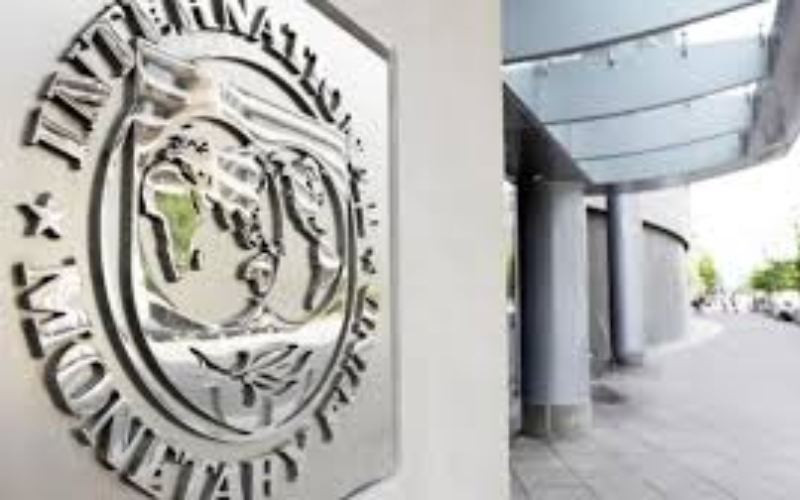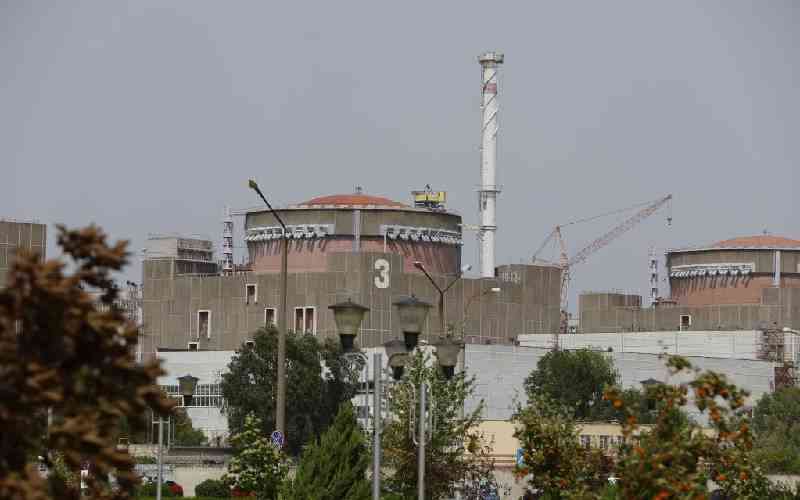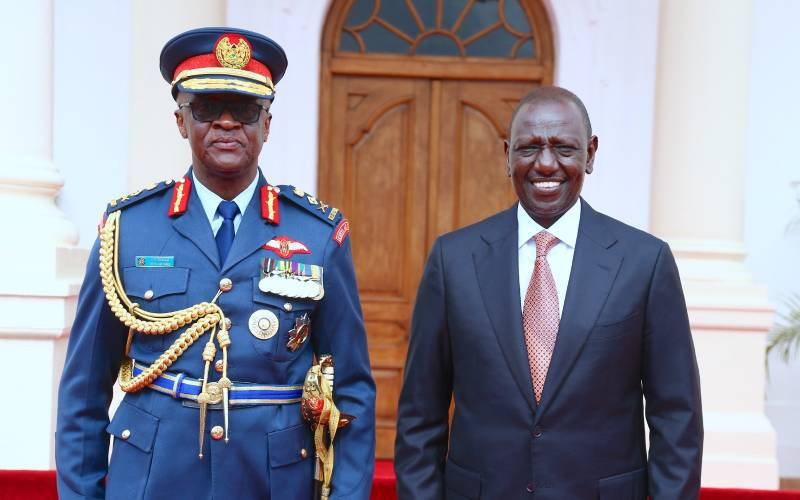The money the Kenya Revenue Authority (KRA) will collect in the next 12 months will just be enough to repay loans falling due and salaries for civil servants.
This puts in jeopardy, not just President Uhuru Kenyatta’s pet projects under the Big Four Agenda and other development undertakings, but also puts the National Treasury in a tight spot in mobilising resources to fight the coronavirus pandemic.
The country will spend Sh904.7 billion in debt repayments over the 2020/21 financial year, taking 55 per cent of the Sh1.62 trillion that KRA expects to collect from taxes, which will take a hit due to the impact of coronavirus on the economy.
Development projects
However, in many instances, the government rolls over its debt, giving it room to breathe during a financial year, although some of this involves taking more expensive debt to pay loans that are due.
Another Sh800 billion will go towards paying of government officials salaries. Kenya’s wage bill stood at Sh795 billion in the financial year to June 2019.
Debt repayment has by far outstripped the amount the government is spending on development projects, which is estimated at Sh583.9 billion the 2020/21 financial year.
This has alarmed Parliament, which now wants Treasury to abandon commercial loans and at the same time restructure loans the country is currently servicing.
In a report on Thursday, National Assembly’s Budget and Appropriations Committee said Treasury needed to urgently review its debt sustainability strategies through measures such as “temporary abandonment of contracting new expensive commercial loans as well as discussions for debt restructuring with Kenya’s largest external creditors.”
“The committee has established that the cost of debt financing actually consumes more financial resources than development expenditure, for which the debt is obtained,” said the Kimani Ichungwa-chaired committee in a report on the budget for the 2020/21 financial year.
“Indeed, since 2016/17 financial year, public debt servicing has outstripped development expenditure in the 2020/21 financial year, it is estimated to be double the amount allocated towards capital expenditure and net lending.”
These sentiments are shared by the Parliamentary Budget Office (PBO), which noted that the government should move fast to get holidays on loan repayments from Kenya lenders, at least until the economy starts to recover.
“A major decline in external receipts, remittances and exports will dangerously expose the country to external debt repayment challenges. To avoid such unprecedented occurrence, the government should expeditiously seek moratoriums on debt repayment for at least one year,” said PBO in a report on the budget estimates.
The Budget and Appropriations Committee’s report tabled in Parliament on Thursday also noted that Kenya’s debt management strategy is falling apart in the face of Covid-19. Worse is that Treasury appears not to have factored the coronavirus pandemic while preparing the budget for the next financial year. It adds that the impact of the pandemic on the Kenyan economy might result in debt distress.
“Given the impact of Covid-19 pandemic on revenue mobilisation, exports, production and other contingent liabilities vis-à-vis expenditure demands, there is a high likelihood that fiscal consolidation measures will be hard to adhere to,” said the Budget and Appropriations Committee.
Stay informed. Subscribe to our newsletter
“Prior to the Covid-19 crisis, both debt service to revenue and debt service to exports rations had exceeded the internationally accepted debt sustainability thresholds. As the impact of the pandemic continues to unfold, forecasts indicate that these rations will worsen while others will breach their thresholds.”
In a recent assessment, the IMF raised Kenya’s risk of debt distress from moderate to high due to the impact of the coronavirus pandemic.
At Sh904.7 billion, Kenya’s public debt servicing expenses constitute the largest portion of the consolidated funds service (CFS) -- expenses that have to be paid whatever the circustances -- expenses. Total CFS budget will be Sh1.03 trillion, with pensions and other expenses taking Sh123.4 billion.
Of the Sh904.7 billion that will go to servicing debt, 51 per cent (Sh463 billion) will go to paying interest rates on loans while the balance of Sh441.6 billion towards redemption payment.
Total expenditure by the Executive – which includes spending by ministries and independent commissions – is estimated at Sh1.827 trillion in the budget estimates presented by the Budget Committee to Parliament. This is slightly more than the Sh1.751 trillion that Treasury had proposed.
The recommendations by the Budget Committee also increased Parliament’s allocation for the coming financial year to Sh37.7 billion, up from Sh35 billion that Treasury had recommended.
While drafting the budget, Treasury had noted that so as to give the government some resources to fight Covid19, there had been an agreement that the expenditure for the different arms be reduced, with the executive’s allocation be capped at Sh1.751 trillion while that of Parliament would come down to Sh35.2 billion and Sh18.05 billion for Judiciary. In the numbers the estimates that were tabled for the second reading on Thursday, it is the allocation to Judiciary that have been retained at this recommendation.
The allocations also include Sh369 billion to the county governments, which comprise Sh316.5 billion (equitable share) and Sh53.4 billion (conditional transfers).
Suba South MP and Minority Leader in the National Assembly John Mbadi, who is also a member of the committee, noted that this year’s budget has been tough as the government grapples with the impact of the pandemic, which will result in substantially low tax revenues while demanding more resources.
“The budget was very tight, so we could not make many changes to it. We however slashed Parliament budget by about 50 per cent especially on travel,” he said.
While the committee proposed minor changes to Treasury’s proposals, there are however a few casualties as well as beneficiaries in the committee’s re-balancing act.
Among the ministries that will see their budgets slashed include Health, if the recommendations by the Budget and Appropriations Committee go through.
Most critical
The Ministry, perhaps the most critical in the fight against Covid-19 will be given Sh111 billion, which is slightly lower than the Sh114 billion that Treasury had proposed to allocate it. The health docket had received Sh92 billion in the current financial year. There are however other measures including additional funds that the government has pumped into the health care systems as well as other areas in the course of this year to help the country fight the coronavirus pandemic.
The National Treasury is among the major beneficiaries, with the Committee recommending an additional Sh20.8 billion as well as another Sh9 billion the State Department of Planning, which is also domiciled in Treasury.
The Office of the President has also seen its allocation substantially go up following the inclusion of the Nairobi Metropolitan Service within the office. NMS has been given Sh28 billion. It had not been allocated any funds when Treasury was drafting the budget for the 2020/21 financial, with expectations that it would share funds with the Nairobi County government. There has since been a tussle between the two entities.
Also a winner is the Ministry of Tourism and Wildlife, which has been allocated an additional Sh5.88 billion (of which Sh3.88 billion will go to tourism and Sh2 billion to wildlife). The Ministry faces the tough job of getting Kenya back on the map as a tourist destination in the post Covid-19 era.
 The Standard Group Plc is a
multi-media organization with investments in media platforms spanning newspaper
print operations, television, radio broadcasting, digital and online services. The
Standard Group is recognized as a leading multi-media house in Kenya with a key
influence in matters of national and international interest.
The Standard Group Plc is a
multi-media organization with investments in media platforms spanning newspaper
print operations, television, radio broadcasting, digital and online services. The
Standard Group is recognized as a leading multi-media house in Kenya with a key
influence in matters of national and international interest.
 The Standard Group Plc is a
multi-media organization with investments in media platforms spanning newspaper
print operations, television, radio broadcasting, digital and online services. The
Standard Group is recognized as a leading multi-media house in Kenya with a key
influence in matters of national and international interest.
The Standard Group Plc is a
multi-media organization with investments in media platforms spanning newspaper
print operations, television, radio broadcasting, digital and online services. The
Standard Group is recognized as a leading multi-media house in Kenya with a key
influence in matters of national and international interest.








